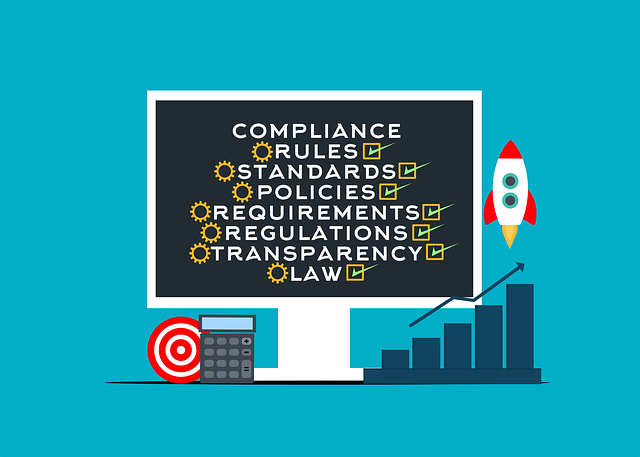Real estate transactions demand meticulous attention, particularly regarding valid real estate licenses. Conducting thorough license checks is vital to prevent legal issues, protect buyers and sellers, maintain industry integrity, and build client trust. These checks verify credentials, education, and disciplinary actions, ensuring clients' confidence in agents' expertise and reliability. Robust background verification systems flag inconsistencies like previous complaints or employment changes, requiring further investigation. By embracing stringent background check best practices, real estate professionals can foster transparency, accountability, and client security through regular license checks, open communication, and robust data security measures.
In the competitive world of real estate, client trust is paramount. Ensuring the integrity of your agents and brokers through comprehensive real estate license checks is no longer a best practice—it’s an essential security measure. This article delves into the critical role of background verification in fostering trust, highlighting common red flags to watch for during licensing verification processes. We provide effective screening strategies and best practices to safeguard clients and maintain industry integrity through robust real estate license checks.
- Understanding the Importance of Real Estate License Checks
- The Role of Background Verification in Building Trust
- Common Red Flags to Look Out For During Licensing Verification
- Implementing Effective Screening Processes for Real Estate Professionals
- Best Practices to Maintain Client Confidence and Security
Understanding the Importance of Real Estate License Checks

The Role of Background Verification in Building Trust

In the competitive world of real estate, building and maintaining client trust is paramount for long-term success. Background verification plays a pivotal role in this process by providing a layer of transparency and assurance. Conducting thorough real estate license checks isn’t just about compliance; it’s a powerful tool to demonstrate integrity and professionalism. By verifying an agent’s credentials, education, and any past disciplinary actions or legal issues, clients gain confidence in the expertise and reliability of their chosen intermediary.
This process becomes even more crucial when facilitating significant transactions, such as buying or selling properties. Background checks help identify potential risks or red flags early on, allowing both parties to make informed decisions. Ultimately, a robust background verification system fosters trust, ensuring that clients feel secure in the knowledge that they are dealing with a qualified and trustworthy real estate professional.
Common Red Flags to Look Out For During Licensing Verification

When conducting real estate license checks, several red flags can signal potential issues or untrustworthy behavior. One common sign is a history of disciplinary actions, including complaints from previous clients, fines, or suspensions. These indicators suggest that the agent may not adhere to ethical standards or industry regulations, casting doubt on their professionalism and integrity.
Another flag to watch for is frequent changes in employment or sudden discontinuities in the license history. Agents who frequently switch jobs or have gaps in their licensing records might be trying to avoid scrutiny or have encountered challenges in maintaining their professional standing. Such inconsistencies warrant further investigation during real estate background checks to ensure a thorough understanding of an agent’s reputation and track record.
Implementing Effective Screening Processes for Real Estate Professionals

In the competitive real estate market, establishing trust with clients is paramount. Implementing robust screening processes for real estate professionals is a key step in ensuring client safety and confidence. Real estate license checks are an essential tool in this regard, verifying that agents and brokers possess valid credentials and have met the necessary educational and ethical standards. By conducting thorough background investigations, including criminal record checks and professional history reviews, agencies can mitigate risks associated with fraudulent activities and ensure clients deal with reputable individuals.
Effective screening goes beyond initial licensing. Regular updates and continuous monitoring of real estate professionals’ backgrounds are crucial. This includes verifying ongoing compliance with regulatory requirements, checking for any disciplinary actions or legal issues that may arise over time. Such diligent practices foster a culture of transparency and accountability, enhancing client trust and providing peace of mind throughout the real estate transaction process.
Best Practices to Maintain Client Confidence and Security

To maintain client confidence and security, real estate professionals should adopt robust best practices for background checks. Regularly conducting thorough real estate license checks is non-negotiable. This involves verifying credentials, licensing status, and any disciplinary actions or pending lawsuits against potential agents or brokers. Utilizing reliable, government-approved databases ensures accuracy and consistency in the verification process.
Beyond license checks, building a culture of transparency fosters trust. Communicating openly with clients about the background check process, its importance, and any findings can alleviate concerns. Additionally, implementing robust data security measures protects sensitive client information during the checking procedure. This includes encrypting data, limiting access to authorized personnel, and adhering to privacy regulations such as GDPR or industry-specific standards.






